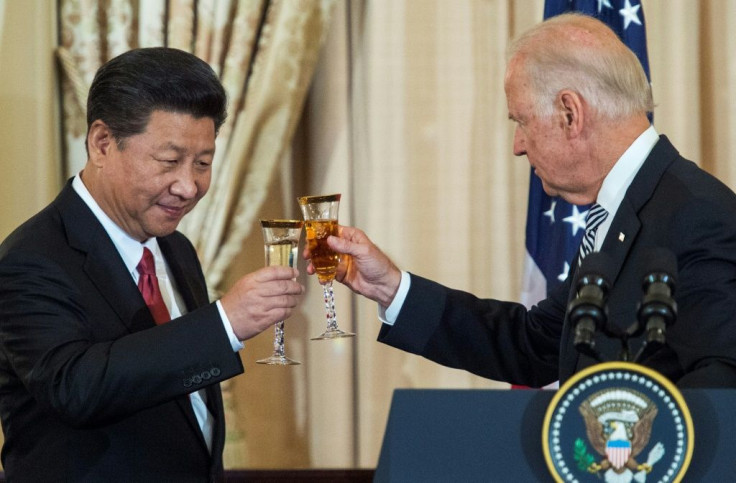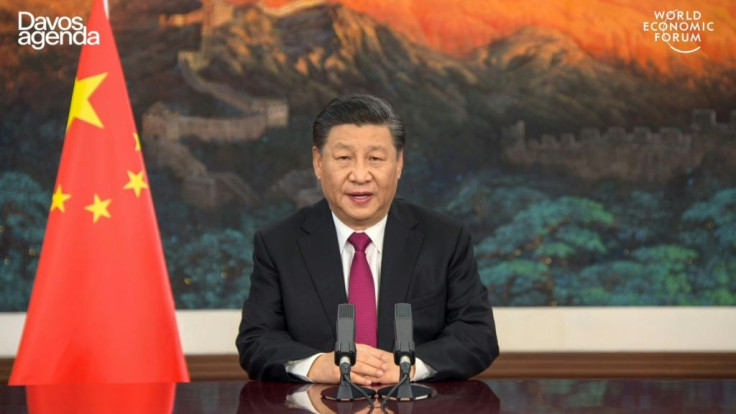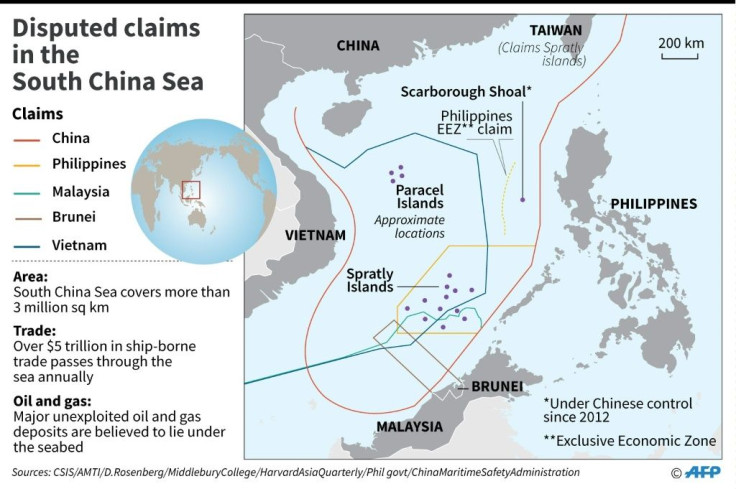Biden, Xi Face Off In Marathon Two-hour Call
President Joe Biden revealed Thursday that his first phone call with Xi Jinping lasted a marathon two hours, during which he challenged his Chinese counterpart on human rights, trade and regional muscle-flexing.
But an increasingly assertive Xi pushed back, according to Chinese state media, telling Biden that issues such as Beijing's crushing of opposition in Hong Kong and saber-rattling on Taiwan are China's "internal affairs."
"Last night, I was in the phone for two straight hours with Xi Jinping," Biden told reporters -- an unusually long interaction for a US president, with whom even face-to-face meetings rarely stretch beyond an hour.
Biden warned afterwards that if the United States doesn't "get moving" on China policy, "they're going to eat our lunch."
Wednesday's call -- the first between the two since Biden took office in January -- was to set the stage for the relationship under the new US leader, after it frayed under former president Donald Trump.

Beijing has tested US patience since Xi came to power, and Trump targeted it with trade tariffs.
Biden is under pressure at home and abroad to maintain Trump's stance, as the West looks to hold China to account for human rights abuses and at a time when some in the United States and wider world blame Beijing for failing to contain the coronavirus pandemic, which was first discovered in the central city of Wuhan.
The president "underscored his fundamental concerns about Beijing's coercive and unfair economic practices, crackdown in Hong Kong, human rights abuses in Xinjiang, and increasingly assertive actions in the region, including toward Taiwan," the White House said after the call.
Chinese state media, reporting the call, said Xi had emphasized the issues were "China's internal affairs and are related to China's sovereignty and territorial integrity."
"The United States should respect China's core interests and act cautiously," it added.

Biden told Xi his priorities were to protect the American people's security, prosperity, health and way of life, and to preserve "a free and open Indo-Pacific."
Washington and its Asian allies have bristled at China's expansion in the South China Sea, a huge and economically vital waterway where Beijing has built militarized islands, despite multiple overlapping claims from neighboring states.
The US has repeatedly sailed warships through the area to press the point that the sea is globally recognized as international waters.

The two leaders also spoke about the Covid-19 pandemic, climate change and weapons proliferation, the White House said.
Chinese state media reported Xi had talked about how "it is necessary to distinguish between areas where there are differences and areas that offer opportunities for meaningful cooperation, and jointly promote cooperation, while managing differences."
It was not Biden's first interaction with Xi; the two met when Biden was vice president in the 2009-2017 administration of Barack Obama.
Criticism of that administration's softly-softly approach to Beijing has intensified in recent years, with US companies increasingly frustrated by what they say is state-sponsored industrial espionage, and fears over a lopsided trade relationship.
Trump took strong unilateral actions against China in an unsuccessful effort to close the yawning US deficit with the country.
Relations soured even further beginning a year ago when Trump accused Beijing of hiding the origin of the coronavirus, which has now killed more than 470,000 Americans.
While Trump severed relations with longstanding allies for a go-it-alone approach to Beijing, Biden has used his first three weeks in office to rebuild those relationships as a foundation for a more collective approach.
One US official said Biden "found merit" in Trump's approach of intense strategic competition towards China -- but that the Trump's strategy and chaotic implementation of policy had played into China's hands.
Biden's administration has reaffirmed support for Taiwan and for Japan's territorial claim on the Senkaku Islands, which China also claims and calls the Diaoyu Islands.
Biden's call to Xi came the same day Taiwan's de facto ambassador to the US held her first publicly acknowledged official meeting with State Department officials under the new administration.
Biden has said he would not ease off militarily on China, and on Wednesday announced a new Defense Department task force which would quickly review the US security approach to the country.
Administration officials said Washington would continue to apply targeted sanctions against Chinese individuals and entities for intellectual property theft, and tighten China's access to sensitive technologies.
They also said that Biden would not move quickly to change the hefty tariffs Trump placed on imports from China.
© Copyright AFP 2024. All rights reserved.





















